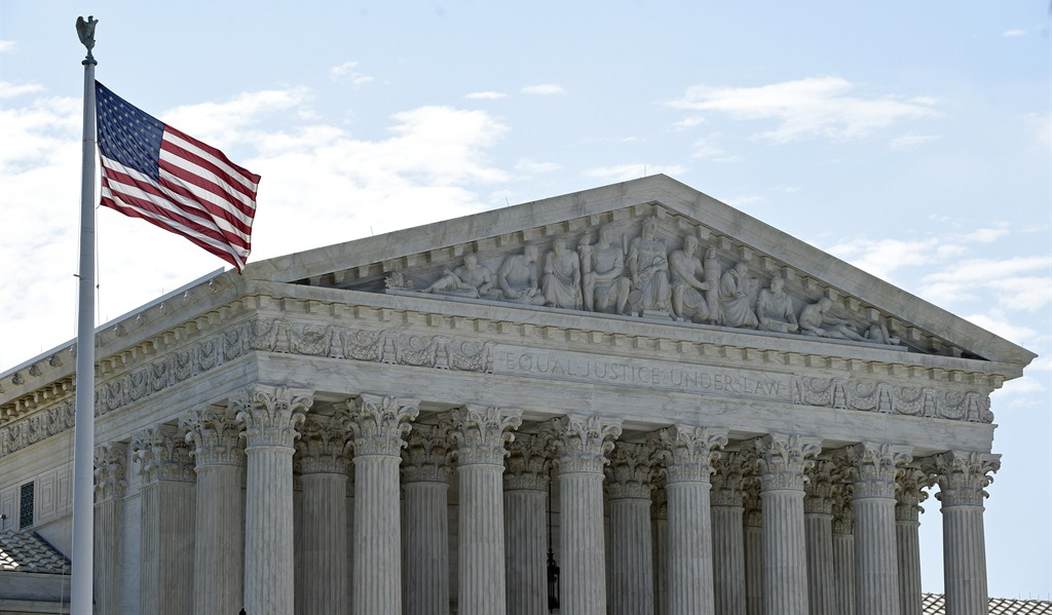“It is emphatically the province and duty of the Judicial Department to say what the law is” declared Chief Justice John Marshall in the landmark case of Marbury v. Madison. For centuries this statement has stood as one of the most famous in American jurisprudence. It was a declaration of the role and duty of the judicial branch within our constitutional structure.
The Constitution provides for three separate and distinct branches of government, each having a “check” on the other, thus allowing, as James Madison wrote, for ambition to “counteract ambition.”
As our government has grown and the issues we face have become more complex, the lines separating the branches have blurred. While it used to be that Americans were subject to federal laws passed by Congress, today the majority of rules that govern their daily lives have been promulgated, interpreted, and administered by federal agencies in the executive branch. So much for “all legislative power shall reside in Congress.”
The regulatory burden on everyday Americans is astounding. Last year, according to the Competitive Enterprise Institute, federal agencies issued nearly 16 regulations for every law passed by Congress, costing businesses an estimated $1.88 trillion in lost economic activity.
Federal courts are tasked with upholding constitutional principles when the political branches fail to do so. When the law is ambiguous or silent on an issue, it is the responsibility of Congress to clear up or add to its language, not the courts or an agency.
The courts should adhere to the natural reading of the law and require government agencies to do the same. In 2013, in City of Arlington v. FCC, the Supreme Court cautioned that “judges ought to refrain from substituting their own interstitial lawmaking” for that of an agency. Yet this is exactly what was done by the Court in the recent King v. Burwell case regarding Obamacare.
Recommended
In Burwell, the chief justice wrote that the principle of “Chevron deference” (which holds that courts should defer to agencies’ interpretation of statutes when the language is ambiguous, provided the interpretation is reasonable) did not apply. “Had Congress wished to assign that question [of whether Obamacare tax credits were available on federal exchanges] to an agency,” Chief Justice Roberts wrote for the majority, “it surely would have done so expressly.” Unfortunately, in this instance the Court decided to give deference to its own interpretation.
Prior to Burwell, precedent for the Court substituting another opinion for that of Congress was set by the Supreme Court in Chevron USA, Inc. v. Natural Resources Defense Council, Inc. (1984), and Auer v. Robbins (1997). Because of these decisions, federal courts have increasingly deferred to agency interpretation, both of their governing statutes and their own regulations.
On its face, this may seem like an understandable position for a court to take. Agencies, after all, are experts in a particular field and have technical expertise that courts often find difficult to scrutinize. In practice, however, excessive deference has fundamentally changed how federal agencies regulate and how Congress writes law — this is a tragic deviance from the constitutional structure of our three branches of government. Instead of simply carrying out the directives of Congress, agencies now look for ambiguities in the law knowing full well that courts will defer to their interpretation.
Consider EPA v. EME Homer City Generation, a case decided by the Supreme Court last year. Congress, under the Clean Air Act, required states to develop plans to keep polluters within their states from sending pollution downwind to other states. Not finding any state plans satisfactory, the EPA simply ignored the statutory directive for states to create their own plans and issued the “Transport Rule.” This rule imposed a plan on 27 “upwind” states disproportionate to the actual pollution each state emitted, causing those states to shoulder more than their fair share of the burden.
Citing Chevron deference, the Court upheld the EPA’s rule. The majority claimed that the EPA was not required to give states a second opportunity to create their own plan despite a completely new regulatory requirement, nor was the EPA required to assign a burden in proportion to each state’s pollutant levels. The agency in essence wrote a new section of the law, and the courts allowed it to. Sadly, this is just one of many examples of agencies overreaching under the assumption that judicial deference will uphold their regulations, leading to costly and time-consuming litigation.
When agencies choose to expand laws written by Congress to pursue their own agenda, knowing that the courts will likely not check their power, judicial deference becomes little more than a blank check for agencies to exercise legislative and judicial authority. Such deference diminishes “We the People” to “They the Regulators.” It also makes the Constitution irrelevant and the voice of the people affected by the regulations ignored.
Relieving the extraordinary regulatory burden on the American people begins by fixing this constitutional imbalance by reconsidering the proper degree of deference that courts should afford agency decisions. It also requires Congress to clearly state in each statute that it is their intent that agencies and the courts not expand the text beyond its natural reading. Finally, the courts have an obligation to restrain — in a manner prescribed by Congress — the agencies from writing new law from their desk. Lawmaking may be slow, but we have checks and balances for a reason.
While what the Court did in Burwell is a step away from Chevron, it’s a step in the wrong direction. The courts should not grant blanket deference to agencies, but neither should courts substitute their own opinion for that of Congress. When the law is ambiguous or silent on an issue, it is the responsibility of Congress and Congress alone to write a clearer and more complete statute.

























Join the conversation as a VIP Member